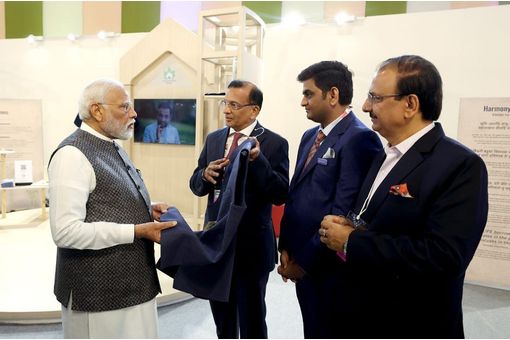Interviews
'E-tailers revamping tech strategies for competitive edge'
05 Jul '18
3 min read

Courtesy: PWC
E-commerce players are revamping their technology strategies to maintain their competitive edge, as per a new report. Most e-tailers are investing conversational commerce, artificial intelligence (AI), virtual reality (VR)/augmented reality (AR) and analytics technologies to identify fraudulent orders, reduce return rate and also cut down on logistics cost.
“AI-based voice-based shopping in vernacular language enables deeper customer engagement and smoothen transition from offline to online by overcoming the language barrier (especially in the case of the 40+ age group and rural consumers),” says the TechWorld report by PwC.
E-retailers are also investing in technology to optimise stock management and achieve greater efficiency – high availability but low inventory of products and translate a digital relationship into an equally interactive and seamless offline experience in-store.
With an emerging middle-class population of more than 500 million and approximately 65 per cent of the population aged 35 or below, the country represents a highly aspirational consumer market for retailers across the globe. This demographic dividend, coupled with an increasing smartphone user base (around 340 million), improved data access and affordability, and the booming digital payment ecosystem supported by the Indian government’s ambitious Digital India project, is giving fresh impetus to the adoption of e-commerce across the country, adds the report.
“In the second largest smartphone market in the world, there is literally a shopping mall in every Indian’s pocket. With internet penetration expected to almost double to 60 per cent by 2022, the number of online shoppers is also expected to rapidly grow to 150–200 million during the same period. This could see India becoming an internet retailing hotbed for domestic and global brands in the next few years,” the PwC report says.
One core enabler for the digital ecosystem to become more viable, feasible and desirable for both the digital consumer and the ecosystem itself is the use of data to customise every transaction or interaction. Since almost all customer interaction for online retailers occurs via phone or email and involves banking information or personal data, e-commerce sites are particularly vulnerable to cyberattacks. Given the recent episodes of data breaches and alleged misuse of customer information, the need for adopting appropriate security measures has escalated significantly, notes the report.
Some of the common vulnerabilities faced by e-commerce systems across the globe include SQL injection which is used to steal and alter data in a website’s database; price manipulation involving price modifications in URLs by hackers; cross-site scripting involving adding scripts to alter or steal website data; and distributed denial-of-service attack (DDOS), a common attack where a specific website is flooded with lots of fake traffic to harm the system.
The report further adds that for companies to effectively balance opportunity and risk, they need to build a superior data protection framework. (KD)
“AI-based voice-based shopping in vernacular language enables deeper customer engagement and smoothen transition from offline to online by overcoming the language barrier (especially in the case of the 40+ age group and rural consumers),” says the TechWorld report by PwC.
E-retailers are also investing in technology to optimise stock management and achieve greater efficiency – high availability but low inventory of products and translate a digital relationship into an equally interactive and seamless offline experience in-store.
With an emerging middle-class population of more than 500 million and approximately 65 per cent of the population aged 35 or below, the country represents a highly aspirational consumer market for retailers across the globe. This demographic dividend, coupled with an increasing smartphone user base (around 340 million), improved data access and affordability, and the booming digital payment ecosystem supported by the Indian government’s ambitious Digital India project, is giving fresh impetus to the adoption of e-commerce across the country, adds the report.
“In the second largest smartphone market in the world, there is literally a shopping mall in every Indian’s pocket. With internet penetration expected to almost double to 60 per cent by 2022, the number of online shoppers is also expected to rapidly grow to 150–200 million during the same period. This could see India becoming an internet retailing hotbed for domestic and global brands in the next few years,” the PwC report says.
One core enabler for the digital ecosystem to become more viable, feasible and desirable for both the digital consumer and the ecosystem itself is the use of data to customise every transaction or interaction. Since almost all customer interaction for online retailers occurs via phone or email and involves banking information or personal data, e-commerce sites are particularly vulnerable to cyberattacks. Given the recent episodes of data breaches and alleged misuse of customer information, the need for adopting appropriate security measures has escalated significantly, notes the report.
Some of the common vulnerabilities faced by e-commerce systems across the globe include SQL injection which is used to steal and alter data in a website’s database; price manipulation involving price modifications in URLs by hackers; cross-site scripting involving adding scripts to alter or steal website data; and distributed denial-of-service attack (DDOS), a common attack where a specific website is flooded with lots of fake traffic to harm the system.
The report further adds that for companies to effectively balance opportunity and risk, they need to build a superior data protection framework. (KD)
Fibre2Fashion News Desk – India
Popular News
Leave your Comments
Editor’s Pick
Pratik Gadia
The Yarn Bazaar - Filosha Infotech Private Limited
Kanika Vohra and Anuradha Chandrashekar
ICH Creative Consulting
Aleksandre Akhalkatsishvili
Label - Aleksandre Akhalkatsishvili
































-Ltd..jpg?tr=w-120,h-60,c-at_max,cm-pad_resize,bg-ffffff)





.jpg?tr=w-120,h-60,c-at_max,cm-pad_resize,bg-ffffff)
.jpg?tr=w-120,h-60,c-at_max,cm-pad_resize,bg-ffffff)






